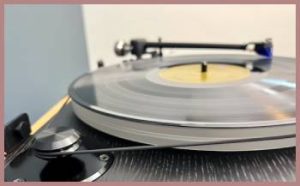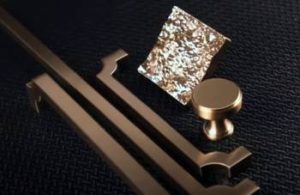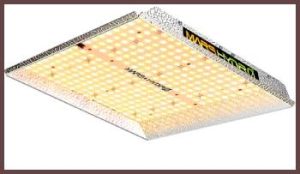Imagine stepping into your shower and feeling the soft caress of water against your skin, leaving you refreshed and rejuvenated. Or picture your dishes and glassware sparkling without any residue or hard water stains. Thanks to advancements in water conditioning technology, achieving these luxuries is no longer a distant dream. One such innovation that has been making waves in the market is the TAC Water Conditioner.
In this article, we will dive deep into TAC Water Conditioner reviews, examining the pros and cons of this revolutionary product, its functionality, and its impact on water quality.
TAC Water Conditioner: A Magnificent Marvel
The TAC Water Conditioner is a cutting-edge device designed to tackle the challenges posed by hard water. Hard water is notorious for its high mineral content, primarily consisting of calcium and magnesium ions. These minerals can cause a multitude of problems, including limescale buildup in pipes, appliances, and fixtures, reduced soap effectiveness, and an overall negative impact on water quality.
Traditionally, water softeners have been used to combat hard water. However, TAC (Template Assisted Crystallization) technology offers an alternative solution that does not rely on salt or chemicals. TAC water conditioners operate on a simple principle: they transform the dissolved minerals into harmless microscopic crystals. These crystals do not adhere to surfaces, preventing the formation of limescale and effectively softening the water.
Do TAC Water Conditioners Work? Unraveling the Mystery
One of the primary questions potential buyers ask is, “Do TAC water conditioners really work?” The answer lies in understanding the science behind this innovative technology. TAC water conditioners have proven to be highly effective in addressing the issues associated with hard water.
Through the process of Template Assisted Crystallization, the TAC device alters the ionic structure of minerals, preventing them from sticking to surfaces and forming limescale. This transformative process leads to cleaner pipes, fixtures, and appliances, while also enhancing soap performance. Numerous TAC Water Conditioner reviews from satisfied customers testify to the device’s ability to deliver on its promises.
Pros and Cons of TAC Water Conditioners
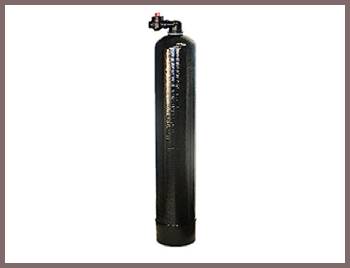
As with any product, TAC water conditioners come with their own set of pros and cons. Let’s explore the advantages and disadvantages to help you make an informed decision.
Pros:
- Salt-Free Solution
Unlike traditional water softeners, TAC water conditioners do not rely on salt or chemicals, making them an eco-friendly choice.
- Low Maintenance
TAC devices require minimal maintenance compared to salt-based systems. There are no salt bags to replace, and the system generally operates autonomously.
- Preserves Essential Minerals
Unlike traditional water softeners that completely remove minerals from water, TAC water conditioners retain beneficial minerals, ensuring a healthier water supply.
- Extended Appliance Lifespan
By preventing limescale buildup, TAC water conditioners help prolong the lifespan of appliances such as water heaters, dishwashers, and coffee makers.
Cons:
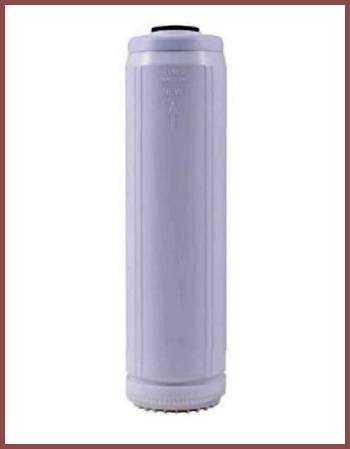
- Upfront Cost
TAC water conditioners can have a higher upfront cost compared to traditional salt-based water softeners. However, the long-term benefits often outweigh the initial investment.
- Limited Efficiency on High Mineral Content
While TAC technology is effective in most cases, extremely high mineral content might require additional filtration or a combination of TAC and other systems.
- Professional Installation
TAC water conditioners typically require professional installation, adding to the overall cost. However, this ensures proper setup and functionality.
What Sets TAC Water Conditioners Apart? Comparing Competitors
While the TAC Water Conditioner stands as a powerful solution for water conditioning, it’s essential to explore how it compares to some of its close competitors. Let’s take a look at two popular alternatives and examine their similarities and differences.
- Salt-Based Water Softeners
Salt-based water softeners have long been the go-to solution for combating hard water. They work by replacing calcium and magnesium ions with sodium ions through a process called ion exchange. While effective in softening water, these systems require regular salt replenishment and may contribute to increased sodium levels in the water.
Additionally, the softened water might have a distinct taste, which some individuals may find less desirable. On the other hand, TAC water conditioners offer a salt-free solution, require minimal maintenance, and retain essential minerals, making them an attractive alternative.
- Magnetic Water Treatment Systems
Magnetic water treatment systems utilize magnets to alter the behavior of mineral ions in water. These systems claim to reduce scale buildup and improve water quality. However, scientific evidence supporting the effectiveness of magnetic water treatment is limited and often inconclusive.
In contrast, TAC water conditioners operate based on the well-established principle of Template Assisted Crystallization. With numerous positive customer reviews and proven results, TAC water conditioners offer a more reliable and scientifically supported solution.
Read More: About Differences Between Culligan And Ecowater
FAQ: Answering Your Burning Questions
To further enhance your understanding of TAC water conditioners, here are some frequently asked questions and their concise answers:
Yes, TAC water conditioners are highly effective in addressing the problems caused by hard water. They transform minerals into harmless microscopic crystals, preventing limescale buildup and improving water quality.
TAC-based water conditioners utilize Template Assisted Crystallization technology to alter the ionic structure of minerals in water. This process prevents mineral deposits and offers a salt-free solution to combat hard water.
The best water softener and conditioner depends on your specific needs and preferences. TAC water conditioners are renowned for their salt-free and low-maintenance approach, making them a popular choice. However, it’s recommended to evaluate various options and consult professionals to determine the best fit for your requirements.
Magnetic water treatment systems claim to reduce scale buildup, but scientific evidence supporting their effectiveness is limited. Without proper scientific validation, the reliability and long-term benefits of magnetic water treatment remain uncertain.
While the advantages of magnetic water treatment are debated, proponents claim potential benefits such as reduced scale buildup, improved water flow, and extended appliance lifespan. However, it’s important to note that these claims lack robust scientific evidence.
Magnets used in water treatment systems are generally considered safe. They do not introduce harmful substances into the water. However, the effectiveness of magnetic water treatment systems in addressing hard water issues remains a subject of debate.
Read More: About Rheem And AO Smith Hybrid Water Heaters
Conclusion
TAC water conditioners have emerged as a game-changing solution for combating hard water problems. With their salt-free approach, minimal maintenance requirements, and proven effectiveness, they offer a compelling alternative to traditional water softeners.
While comparing it to competitors, such as salt-based water softeners and magnetic water treatment systems, TAC water conditioners stand out for their reliable results and scientific backing. With TAC water conditioners, you can transform the quality of your water, enjoy the benefits of

